#Myung-Whun Chung
Text
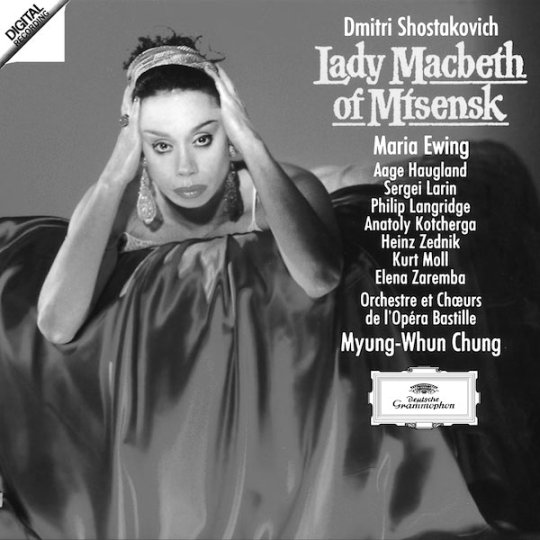
Current;y Playing
Dmitri Shostakovich
LADY MACBETH OF MTSENSK, Op. 29
Maria Ewing
Aage Haugland, Sergej Larin, Philip Langridge, Anatoly Kotcherga, Heinz Zednik, Kurt Moll, Elena Zaremba
Myung-Whun Chung
Orchestre et Chœurs De L'Opéra Bastille
3 notes
·
View notes
Text
Un innocente amor
Wolfgang Amadeus Mozart (1756 - 1791): «Là ci darem la mano», duettino di Don Giovanni e Zerlina, dal I atto, scena 9a, del dramma giocoso Don Giovanni K 527 (1787), libretto di Lorenzo Da Ponte. Bryn Terfel, baritono; Cecilia Bartoli, soprano; Orchestra dell’Accademia nazionale di santa Cecilia, dir. Myung-Whun Chung.
Friedrich Dotzauer (1783 - 6 marzo 1860): Andante con Variazioni über ein…

View On WordPress
#Bryn Terfel#Cecilia Bartoli#Eliahu Inbal#Friedrich Dotzauer#Fryderyk Chopin#London Philharmonic Orchestra#Lorenzo Da Ponte#Marie Spaemann#Myung-Whun Chung#Orchestra dell&039;Accademia nazionale di santa Cecilia#Rebekka Markowski#Robert Schumann#Tytus Woyciechowski#Wolfgang Amadeus Mozart
2 notes
·
View notes
Text
Happy birthday Myung-whun Chung
0 notes
Video
youtube
Olivier Messiaen, Les offrandes oubliées (1930).
Myung Whun Chung, director
7 notes
·
View notes
Note
(conductor anon) delighted you're keen to hear my thoughts! i'm not sure which movement is my favourite, i think on the whole it is probably 2 as well (really aptly named i think!)? but i really like the first movement, and i love the ending (and ofc 4 is timelessly breathtaking). hard to pick tbh! currently i am really enjoying chung myung-whun's interpretation of it, though i occasionally wish his 4th was a tad faster (even if it is appropriately dramatic) and brought out the harp a bit more!
(2/2) but i rly like his opening, which has a v nice good tempo in the radio france orchestra recording (down also to the brilliant trumpetist!). i'm a cello player (mvt 2 has a lovely cello bit), but i'll say mahler 5 has truly opened my eyes to the trumpet. i'd love to learn to play it tho i'm not sure i have the lung capacity for wind instruments. anyway thank you for being so kind! i am also in love with you. you make me want to think more about mahler and learn more about the french horn :)
//
HIIIII sorry about the three thousand year response time I wanted to really listen to the chung myung whun radio france recording!! also I will put a linkie down below for anyone else curious
[Wait I just got done typing this whole thing and I realized you were talking abt mahler 5 for the whole ask and not mahler 2. I was like hmmmm did I really say mahler 2 mvmt 2 was my favorite that's not true?? and i realized wait holy shit... I misinterpreted the first part of your ask 😭😭 so this is totally not the right recording ANDBDJS]
youtube
[Video Description: a filmed orchestral performance of Myung Whun Chung conducting Mahler 2 with the Radio France Philharmonic. /End Description]
I really agree with you that what he did with the opening was really striking! The initial cello "punch" is much less punchy which is really interesting! As I was listening to this I was thinking hmmmm what is the best cello part in mahler 2... I agree w you that movement 2 has a lot of good cello bits!! But I have to say the very beginning is so nice and satisfying for me 🐦🍒 and the recapitulation of course 😇
Also I love his whole conducting demeanor... he is so solemn, like you can REALLY tell that he respects the piece and is giving it an appropriate amount of weight!!
I really enjoyed the horn players ^^ I thought the very high notes were especially clear and delicate!! I will be honest the piccolo made me wince on more than one occasion . but like it's a live recording and there are so many moving parts to get right so I get it
Also his face at the beginning of the third movement after the big timpani moment was so funny. Like is that disapproval?? Did the timpani player mess up?? It sounded good to me 😭
I understand not liking a slower movement 4!! But I have to say I reeeeeeally like a slow mvmt 4... cannot say I have found one that is too slow for me yet. I liked the blending and the brass chorale was soooooo gentle and sweet and drawn out 💕🐝💕🐝💕🐝💕🐝💕🐝
OKAY I'm going to stop putting my mahler 2 stream of consciousness here 💗🐛 thank you for sending in the specific reccomendation I don't often listen to recordings on YouTube which is a shame bc there's a lot to be gained visually I think!!
I definitely agree w you that mahler 5 opened my eyes to trumpet!! And also cello to be honest, I love love the sound of the really high cello bits trading back and forth w other strings in the 4th movement. I would encourage you to try trumpet if you think you'd enjoy it!! Breath support is a skill to be learned not necessarily something you just have or don't have!
Thank you for chatting abt mahler with meeeee 💌🍞💌🍞💌🍞💌🍞 mwah mwah mwah mwah
2 notes
·
View notes
Text
Asian Conductors
Asian conductors have made significant contributions in the classical music world for many years. Kent Nagano and Tadaaki Otawa (Japan) and Myung-Whun Chung (South Korea) among others. In this edition of In Conversation we look at two titans of the classical stage whose impact has been immense for close on fifty years. However, a new generation of talent is immerging so we pick two conductors who…

View On WordPress
#Cecile Licad#Classical Music#George Gershwin#Gerard Salonga#Gustav Holst#Kevin Puts#New York Philharmonic#Orchestre de Paris#Paul Archibald#Peter Tchaikovsky#Phil Whelan#Philadelphia Orchestra#RTHK Radio 3#Seiji Ozawa#South Denmark Philharmonic#Symphony No 4#The Planets#Time For Three#Variations on I Got Rhythm#Xian Zhang#Zubin Mehta
0 notes
Text
Scala: Chung sbaglia al piano, si ferma e scherza col pubblico
Myung-Whun Chung ha un legame
storico con la Filarmonica della Scala, tanto che ne è stato
nominato direttore emerito. Il concerto di ieri però per lui è
stato un debutto milanese perché per la prima volta oltre a
dirigere si è esibito anche al pianoforte.
È stato lui stesso a spiegarlo al pubblico quando, durante
l’esecuzione del concerto per pianoforte in La maggiore di
Mozart si è…
View On WordPress
0 notes
Text
1 note
·
View note
Text
Stagione Musicale di Varese concerto sulle note di Beethoven e Mozart
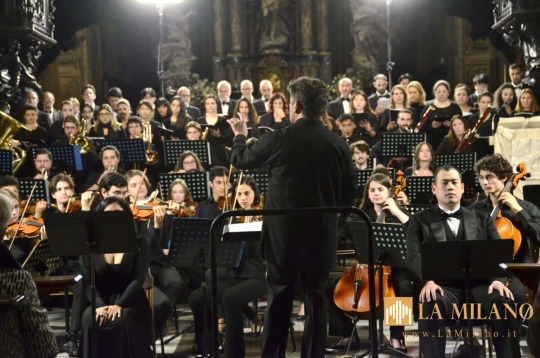
Stagione Musicale di Varese concerto sulle note di Beethoven e Mozart
Secondo appuntamento per la ventiquattresima edizione della Stagione Musicale di Varese. Dopo il successo dell'apertura col Requiem di Giuseppe Verdi, accolto dalla città con minuti di applausi, il secondo concerto della rassegna è sulle note di Beethoven e Mozart. Venerdì 24 novembre, nella Basilica di San Vittore a partire dalle 20.30, l’Orchestra dell’Accademia Teatro alla Scala con il giovane direttore varesino Giovanni Conti si esibiranno nell'ultimo concerto per pianoforte e orchestra di Beethoven e nell’ultima dirompente sinfonia di Mozart, la n. 41.
"La Stagione Musicale varesina è una una vera eccellenza della nostra città – dichiara l'assessore alla Cultura Enzo Laforgia – con la grande musica accompagnata da interpreti straordinari. La ventiquattresima edizione, come sempre curata dal direttore artistico Fabio Sartorelli, è caratterizzata anche dalla presenza di orchestre e gruppi corali con molti elementi, elemento che conferisce alla Basilica un'atmosfera ancora più suggestiva".
L’Orchestra dell’Accademia è un progetto formativo nato allo scopo di accompagnare i giovani musicisti alla futura carriera professionale offrendo una preparazione completa sul repertorio sinfonico, operistico e di balletto. Giovani ma con alle spalle un’impressionante lista di teatri nei quali si sono esibiti: oltre alla Scala di Milano, il Teatro Bol’šoj di Mosca, La Fenice di Venezia, il Teatro Massimo di Palermo, il Teatro San Carlo di Napoli, l’Auditorium Rai di Torino. Il solista, Alessandro Taverna, è uno dei migliori pianisti italiani del momento, tanto da essere salutato dalla stampa, dopo un concerto a Londra, come il degno erede di Arturo Benedetti Michelangeli. Taverna ha suonato con la Filarmonica della Scala, l’Orchestra Sinfonica
Nazionale della RAI, la Royal Philharmonic Orchestra, sotto la direzione di mostri sacri come Lorin Maazel, Riccardo Chailly, Fabio Luisi, Myung-Whun Chung e Daniel Harding.
«Quando mi è stato proposto di dirigere i giovani dell’Accademia del Teatro alla Scala, con un solista straordinario come Alessandro Taverna, mi sono tremate le vene ai polsi» – ammette Giovanni Conti – «Per un direttore italiano, qualunque cosa inglobi il nome “Scala” diventa l’obiettivo della vita. Conosco il valore di questa orchestra e sono consapevole dell’importante occasione che mi è stata offerta. Occasione che non vivrò come una sfida ma come un momento di scambio: spero di poter imparare qualcosa da loro e mi auguro che loro possano imparare qualcosa anche da me». Ed è in Basilica che Giovanni dirigerà il concerto della Stagione Musicale: «uno dei luoghi più importanti a Varese. Mio papà, mio nonno e il mio prozio sono stati organisti qui. Dirigere in questo luogo sarà per me un ulteriore passaggio emotivo».
Informazioni
- Le prevendite sono al MIV – Multisala Impero Varese in via Giuseppe Bernascone, da lunedì a venerdì dalle ore 17.00 alle 22.00, sabato e domenica dalle ore 15.00 alle 22.00;
- oppure online al link Per informazioni è possibile chiamare il numero di telefono 0332 284004 oppure scrivere [email protected].
- Maggiori dettagli su questo link...
#notizie #news #breakingnews #cronaca #politica #eventi #sport #moda
Read the full article
0 notes
Text
Vincenzo Costanzo joined the children’s choir of the Teatro San Carlo in Naples at the age of six. He made his debut as a soloist at the age of 11 in a contemporary opera, again at the Teatro San Carlo. He studied piano and solfège in a private school, and then obtained his degree at the local conservatory. At the same time, he graduated in Computer Engineering, continuing his singing studies with Marcello Ferraresi, and then perfecting his skills with Piero Giuliacci. Despite his young age, Vincenzo Costanzo has already won an Oscar Della Lirica (New Generation Tenor award) in Doha (Qatar) in 2014, and has had the opportunity to work with internationally renowned directors and conductors such as Myung-whun Chung at the Teatro La Fenice in Venice and in Tokyo, James Conlon at the Teatro Real in Madrid, Emma Dante at the Teatro Massimo in Palermo, Daniel Oren and Franco Zeffirelli at the Arena di Verona and Liliana Cavani at the Gran Teatre del Liceu in Barcelona. His most recent engagements include Un Ballo in Maschera, Simon Boccanegra (Gabriele Adorno), Tosca (Cavaradossi), Maurizio Di Sassonia in Adriana Lecouvreur and Madama Butterfly (Pinkerton).
Dear Vincenzo, thank you for accepting our invitation! Now you are at Sabbioneta, at Teatro all’Antica, for a new project: Giuseppe Verdi’s La Traviata, alongside Elisa Balbo and Luca Micheletti. What can you tell us about this project? How did this idea come about? How is it going on so far?
Hello, dear readers of OPERA Charm. A few days ago we finished the shooting of La Traviata in the suggestive theater of Sabbioneta. It has been a wonderful experience, but unfortunately I can’t release any information about it because the project has not been announced yet. I can only give you a little spoiler: the technology used for audio and video shooting is totally innovative and unprecedented. You’ll hear about it soon.
To go a bit backwards: when did you feel for the first time that opera is your path and who are those who guided your first steps towards the stage? What’s the moment that you consider to be the actual beginning of your career?
In my family I am the only musician and artist. I have felt a vocation within me since I was a child. I took my first steps on stage at the age of 9 at the San Carlo Theatre in Naples and I identify the beginning of my career with the victory of the Voci Verdiane award in Busseto at the age of 21.
You had the chance to work with Daniel Oren, Franco Zeffirelli, Andrea Battistoni, Leo Nucci, Juraj Valcuha, Giampaolo Bisanti, Francesco Ivan Ciampa and many others. What each “gesture” has thought you and which of them had the most important impact on you as an artist until now?
I have been lucky enough to be part of the opera world since I was very young and every single person I have met during my journey has enriched me as a man and an artist. I could name a thousand episodes that have made me understand the sacrifice and dedication necessary for this ancient art.
reposted from https://opera-charm.com/
0 notes
Text
La stagione 2023 – 24 della Scala di Milano

Per la Stagione 2023/2024 la Scala d Milano vedrà un calendario di oltre 250 spettacoli tra Opera, Balletto, Concerti e programmazione per i ragazzi e per le famiglie, ricco di conferme ma anche di proposte inattese, completato da mostre, incontri, visite e approfondimenti per stringere ancora di più il rapporto con il nostro pubblico milanese, nazionale e internazionale.
Inoltre il 2024 vedrà concludersi i lavori della nuova palazzina di via Verdi, che accoglie nuove sale prova per l’Orchestra e il Ballo, oltre che gli uffici attualmente dislocati in altri edifici, e garantisce ulteriore profondità al palcoscenico.
La Stagione d’Opera 2023/2024 del Teatro alla Scala si compone di 14 spettacoli, 10 dei quali sono nuove produzioni, oltre allo spettacolo inaugurale della Stagione 2024/2025, e ci saranno 3 opere di Giuseppe Verdi e 2 di Giacomo Puccini e con un titolo ciascuno sono rappresentati Antonio Cesti, Luigi Cherubini, Gaetano Donizetti, Ruggero Leoncavallo e Pietro Mascagni, Jules Massenet, Wolfgang Amadeus Mozart, Gioachino Rossini, Nino Rota, Richard Strauss, Richard Wagner.
Alle Stagioni d’Opera e Concerti partecipa una schiera di direttori del più alto livello internazionale, al Direttore Musicale Riccardo Chailly, come Alain Altinoglu, Myung-Whun Chung, Daniele Gatti, Daniel Harding, Michele Mariotti, Ingo Metzmacher, Riccardo Muti, Kirill Petrenko, Esa-Pekka Salonen, Christian Thielemann, Lorenzo Viotti, e nel repertorio barocco Giovanni Antonini, William Christie, Marc Minkowski, Philippe Herreweghe.
In campo registico il cartellone vedrà nuovi allestimenti di Daniele Abbado, Irina Brook, Robert Carsen, Davide Liver-more, Christof Loy, David McVicar, Damiano Michieletto, Chiara Muti, Lluis Pasqual e del giovane Mario Acampa per il progetto Accademia, mentre tra le riprese vanno citati Harry Kupfer, Mario Martone e Giorgio Strehler.
Il repertorio italiano è al centro della programmazione dal titolo inaugurale, Don Carlo, diretto da Riccardo Chailly nella versione italiana in quattro atti scritta da Verdi per la Scala con la regia di Lluis Pasqual e che fu diretto per due inaugurazioni da Claudio Abbado, di cui cade nel 2024 il decennale della scomparsa.
Seguiranno la nuova produzione di Simon Boccanegra diretta da Lorenzo Viotti con la regia di Daniele Abbado, ma anche le riprese di Pagliacci e Cavalleria rusticana nello storico allestimento di Mario Martone con Giampaolo Bisanti sul podio e di Don Pasquale nella produzione di Davide Livermore ambientata a Cinecittà, diretta da Evelino Pidò.
Nel 2024 ricorre il centenario della scomparsa di Giacomo Puccini e la Scala lo celebra con nuove produzioni de La rondine, che mancava dal 1994 e sarà diretta da Riccardo Chailly per la regia di Irina Brook, e di Turandot, diretta da Daniel Harding per la regia di Davide Livermore.
Sempre nell’ambito del grande repertorio italiano la nuova produzione di Guillaume Tell sarò per la prima volta alla Scala nella versione originale francese con Michele Mariotti sul podio e il debutto scaligero di Chiara Muti alla regia.
Anche Médée di Luigi Cherubini, diretta da Michele Gamba, giunge per la prima volta sul palcoscenico in versione originale francese, sessantatré anni dopo l’ultima produzione diretta da Thomas Schippers con Maria Callas protagonista.
Il percorso di esplorazione del Barocco italiano avviato dal Sovrintendente Meyer con le felici produzioni de La Calisto di Francesco Cavalli e Li zite ngalera di Leonardo Vinci arriva all’Orontea di Antonio Cesti, dramma per musica del 1656 di cui proprio la Scala aveva avviato la riscoperta con l’edizione diretta da Bruno Bartoletti nel 1961.
Ogni anno un titolo della Stagione d’Opera è affidato agli allievi dell’Accademia e per il 2024 sarà Il cappello di paglia di Firenze, la farsa che Nino Rota trasse da Labiche.
Read the full article
0 notes
Text
27 DE ABRIL DE 2023 : DEPOIS DE WAGNER HOJE O CONSOLO FOI DE MESSIEN NA GULBENKIAN OUVINDO A TRANSIGURATION DE NOTRE SEIGNEUR JESUS-CHRIST » OBRA PARA CORO MISTO , SETE SOLISTAS INSTRUMENTAIS E GRANDE ORQUESTRA .FOI INTERPRETADA POR 2 “ MISSIONÁRIOS “ - O MAESTRO MYUNG -WHUN CHANG E O PIANISTA ROGER MURARO ! :ao dia 52 da ausência absurda ao fim da tarde cumpri a “nossa “ assinatura procurando um o consolo de Messien . A origem desta obra transcendente
está numa encomenda feita a Messiaen, a 9 de junho de 1965, por Madalena de Azeredo Perdigão (1923-1989), diretora do Serviço de Música da Fundação Calouste Gulbenkian Considerada por Messiaen como“a mais substancial de todas as obras
que compus,, La Transfiguration constrói uma síntese das obras anteriores: »o pendor meditativo do Quatuor pour
la fin du temps (1941), a fluidez coral de Cinq Rechants (1948), o ímpeto orquestral da sinfonia Turangalîla (1948) e a vivacidade da percussão do Sept Haïkaï (1962). Igualmente, enquanto consumado ornitologista, Messiaen utilizou o chilrear de pássaros dos cinco continentes como motivos melódico-rítmicos
que pontuam toda a composição ». Foi um dos melhores concertos da temporada e doeu estar vazia a cadeira 11 da fila 27. A profunda melomana que foi a Maria Zaza teria adorado esta obra maior da música do século XX .
12. Terribilis est locus iste
« C’est en regardant, par temps clair, le Mont Blanc, la Jungfrau, et les trois glaciers de La Meije en Oisans, que j’ai compris la différence entre la petite splendeur de la neige et la grande splendeur du soleil – c’est là aussi que j’ai pu imaginer à quel point le lieu de la Transfiguration était terrible !... La terreur sacrée est rendue par les sons pédales des trombones et les « clusters » trillés dans le grave. Le décor est donné par les cris des oiseaux de montagne : Faucon pèlerin, Aigle de Bonelli. La lumière des « hauteurs » apparaît dans les accords de Bois et Cuivres passant subitement au pianissimo des sons harmoniques de violons : dans cette blancheur surnaturelle frémissent les pizzi des violoncelles et les couleurs d’accords du piano, des cloches, des crotales. Une vocalise collective écrite à vingt parties réelles amène le mot final : “Terribilis”. »
Terrível e o que estou a viver
Coro e Orquestra Gulbenkian
Myung-Whun Chung Maestro
Roger Muraro Piano
Sónia Pais Flauta
Iva Barbosa Clarinete
Varoujan Bartikian Violoncelo
Nuno Simões Marimba
Marco Fernandes Vibrafone
Bruno Costa Xilofone
Jorge Matta e Inês Tavares Lopes Maestros do Coro Gulbenkian Olivier Messiaen
La Transfiguration de Notre Seigneur Jésus-Christ
PREMIER SEPTÉNAIRE
1. Récit évangélique
2. Configuratum corpori claritatis suae
3. Christus Jesus, splendor Patris
4. Récit évangélique
5. Quam dilecta tabernacula tua
6. Candor est lucis aeternae
7. Choral de la Sainte Montagne
I
DEUXIÈME SEPTÉNAIRE
8. Récit évangélique
9. Perfecte conscius illius perfectae generationis
I0. Adoptionem filiorum perfectam
II. Récit évangélique
I2. Terribilis est locus iste
I3. Tota Trinitas apparuit
I4. Choral de la lumière de Gloire



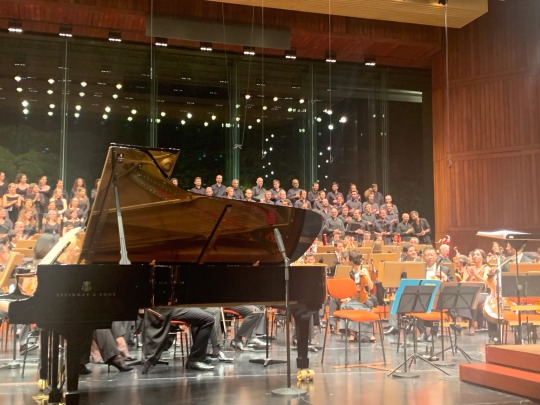
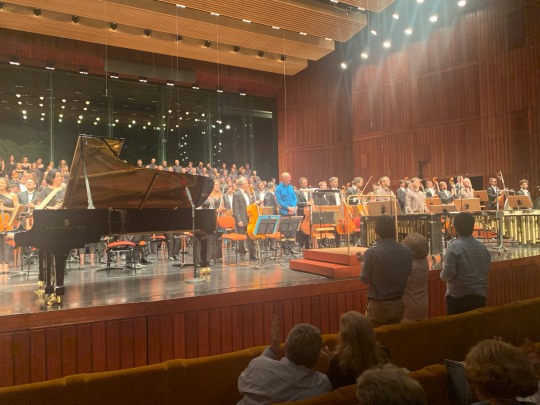

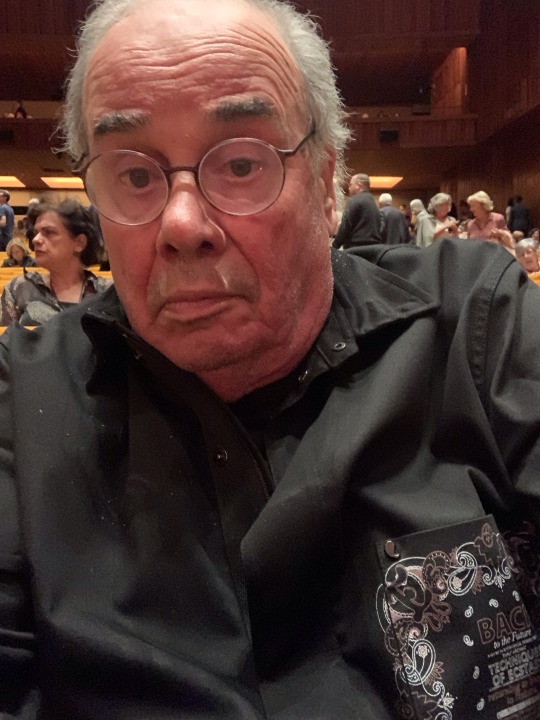
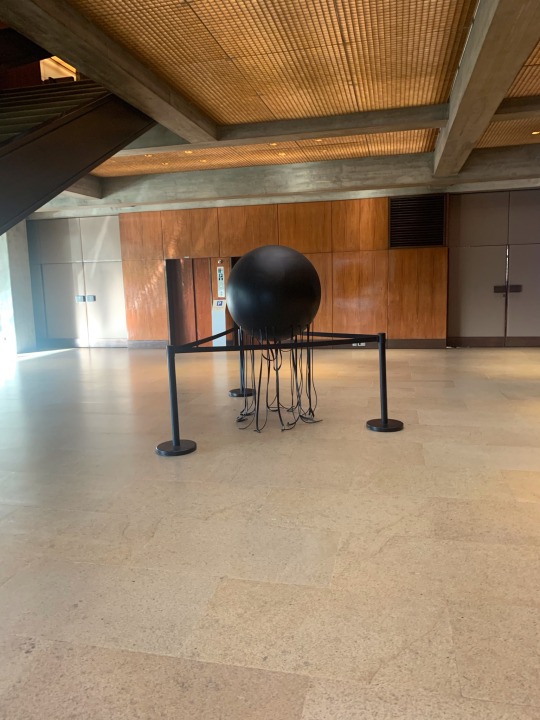
0 notes
Text
Shakespeariana - VI
Morte di Ofelia
Hector Berlioz (1803 - 1869): La mort d’Ophélie, ballade op. 18 n. 2, H. 92 (1842); testo di Ernest Legouvé. Cecilia Bartoli, mezzosoprano; Myung-Whun Chung, pianoforte.
Auprès d’un torrent Ophélie
cueillait, tout en suivant le bord,
dans sa douce et tendre folie,
des pervenches, des boutons d’or,
des iris aux couleurs d’opale,
et de ces fleurs d’un rose pâle
qu’on appelle des…
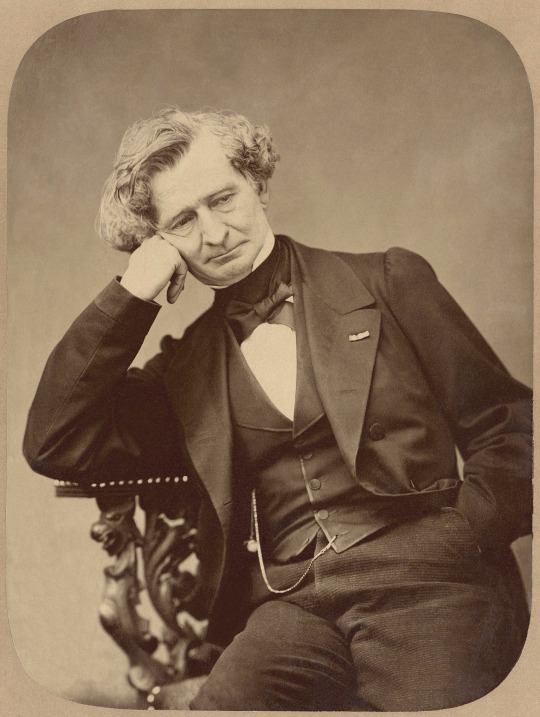
View On WordPress
1 note
·
View note
Text
youtube
Jules Massenet (1842-1912) - Le Cid / Act 3 - O Souverain, ô juge, ô pére ·
Ben Heppner · London Symphony Orchestra · Myung-Whun Chung · London Voices · Terry Edwards
1 note
·
View note
Video
youtube
Rachmaninov : Concerto pour piano n°3 (Daniil Trifonov / Myung-Whun Chung)
1 note
·
View note
Text
CONCIERTO DE UNA NOCHE DE VERANO 2022

CONCIERTO DE UNA NOCHE DE VERANO 2022
El Concierto de una noche de verano de la Filarmónica de Viena con Andris Nelson y el chelista Gautier Capuçon ya disponible en DVD y Blu-ray.
Consíguelo AQUÍ
Sony Classical se complace en anunciar el lanzamiento del Concierto de una Noche de Verano 2022 de este año con la Filarmónica de Viena, dirigida por Andris Nelsons y con el violonchelista Gautier Capuçon como solista.
El Concierto de una Noche de Verano se realizó este año el 16 de junio de 2022. Es un evento anual al aire libre, que se celebra desde 2008. La serie anterior fue el "Concierto por Europa", que tuvo lugar desde 2004 hasta 2007. El parque del Palacio de Schönbrunn, en Viena/Austria, es el escenario mágico del concierto. Los ilustres directores que han dirigido anteriormente la orquesta en este evento son Georges Prêtre, Daniel Barenboim, Franz Welser-Möst, Lorin Maazel, Christoph Eschenbach, Zubin Mehta, Semyon Bychkov, Gustavo Dudamel y Daniel Harding.
Gracias a su ubicación, declarada Patrimonio de la Humanidad por la UNESCO, en el parque barroco de Schönbrunn con el palacio como telón de fondo, el Concierto de una Noche de Verano añade un enorme encanto visual a su magnífica calidad musical. Este evento representa la música clásica en su máxima expresión. Millones de espectadores y oyentes de más de 80 países pueden seguir el concierto por Internet, por televisión y por radio. Por primera vez desde la pandemia, el Concierto de una Noche de Verano 2022 de la Filarmónica de Viena pudo volver a celebrarse con el aforo completo. La Filarmónica de Viena dedicó el concierto de este año al tema del Patrimonio Musical de Europa con dos estrenos, el del compositor letón contemporáneo Arturs Maskats con su Tango para Orquesta Sinfónica, así como El vals de la despedida del destacado compositor ucraniano Mykola Lysenko. El programa incluyó además favoritos desde Beethoven y Rossini hasta Smetana y Dvořák.
El programa de este año contó con la presencia del violonchelista estrella Gautier Capuçon, que se presentaba por primera vez en el Concierto de una Noche de Verano. Gautier Capuçon actúa con la Filarmónica de Viena desde 2015.
Gautier Capuçon es un auténtico embajador del violonchelo en el siglo XXI. Ha actuado a nivel internacional con muchos de los directores e instrumentistas más importantes del mundo. Comprometido con la exploración y ampliación del repertorio para violonchelo, Capuçon interpreta una amplia gama de obras en cada temporada y estrena nuevos encargos con regularidad. En la temporada 2021/22, Capuçon actuó, entre otras, con las orquestas filarmónicas de Viena/Alain Altinoglu, Múnich/Giedre Šlekyte y Nueva York/Yu Long; la Concertgebouworkest/Myung-whun Chung y la Orquesta de Cleveland/Michael Tilson Thomas. Es artista residente en la Filarmónica de París y en la Wiener Konzerthaus. Además, Capuçon toca en festivales de todo el mundo, como el Enescu, el Rostropovich, la Primavera de Praga, el St. Denis y los festivales de Evian.
Andris Nelsons trabajó por primera vez con la Filarmónica de Viena en octubre de 2010 y desde entonces ha sido un invitado habitual e invariablemente bienvenido, no solo en los conciertos de abono de la orquesta en el Musikverein de Viena y en el Festival de Salzburgo, sino también en giras por Asia, Estados Unidos y Europa. Ha aparecido más de ochenta veces en el podio de la Filarmónica de Viena. Más recientemente, dirigió el prestigioso Concierto de Año Nuevo 2020.
Andris Nelsons es director musical de la Orquesta Sinfónica de Boston y Gewandhauskapellmeister de la Gewandhausorchester de Leipzig. Estos dos cargos, además de su liderazgo de una alianza pionera entre ambas instituciones, han consolidado a Nelsons, ganador de un premio Grammy, como uno de los directores de orquesta más reconocidos e innovadores del panorama internacional actual.
La tradición de 177 años de la Filarmónica de Viena se remonta a 1842, cuando Otto Nicolai dirigió un Gran Concierto con todos los miembros del "Hof-Operntheater" imperial. Este evento se llamaba originalmente "Academia Filarmónica" y se considera el origen de la orquesta. Desde su fundación, la orquesta ha sido gestionada por el comité administrativo -un órgano elegido democráticamente- y trabaja con autonomía artística, organizativa y financiera. Todas las decisiones se toman de forma democrática durante la asamblea general de todos los miembros.
Sony Classical publicará este concierto único hoy 15 de Julio en CD, y el 22 de Julio en DVD y Blu-ray, así como en formato digital. Y ya está también disponible en formato digital
1. LUDWIG VAN BEETHOVEN
Overture No. 3 to Leonore, op. 72
2. MYKOLA LYSENKO*
Farewell Waltz
3. ARTURS MASKATS*
Tango para Orquesta Sinfónica
4. CAMILLE SAINT-SAËNS
Concierto para violonchelo nº. 1, op. 33
5. GIOACCHINO ROSSINI
Obertura de La gazza ladra
6. GEORGES ENESCU
Rapsodia rumana nº. 1, op. 11/1
7. BEDŘICH SMETANA
Obertura de La novia vendida
8. ANTONÍN DVOŘÁK
Danza eslava en mi menor, op. 72/2
*Primera interpretación en un concierto de la Filarmónica de Viena
0 notes